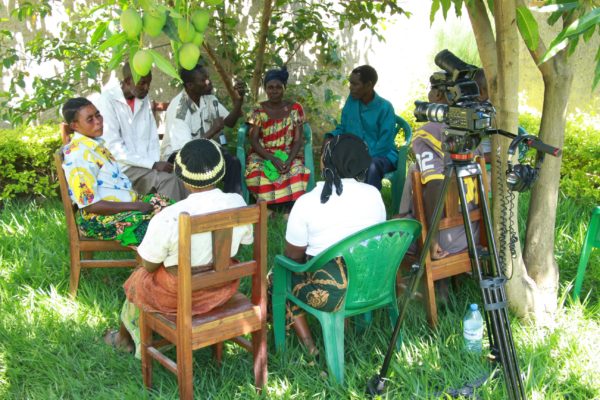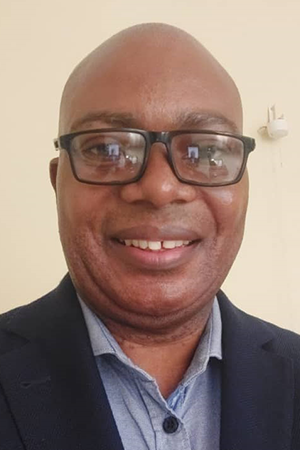Interpeace’s work in the Democratic Republic of Congo (DRC) has been incremental since 2013, when the organization launched a cross border dialogue programme to help rebuild trust and deconstruct identity-based stereotypes among frontier communities in the eastern DRC, Rwanda and Burundi.
More recently in 2018, Interpeace entered a consortium named Ensemble pour Beni (“Together for Beni”) with four other organizations, to work together in the Beni Territory of North Kivu province. Beni has experienced deadly violent conflicts perpetrated by different armed groups. Beni is also one of the epicentres of the 2018 Ebola outbreak in the DRC, and the intermittent violence has hampered efforts to contain the disease. The consortium brings together the l’Organisation internationale pour les migrations (IOM), Interpeace, Search for Common Ground, World Visionet l’Université chrétienne bilingue du Congo (UCBC), avec le soutien de la Mission de stabilisation de l’ONU en RDC (MONUSCO). Ensemble pour Beni vise à associer les communautés locales et les autorités à une auto-analyse des défis, possibilités et solutions potentielles pour la paix dans le territoire de Beni.
Additionally, in the Beni and Butembo Territories of North Kivu, Interpeace launched a new project to help restore trust between Ebola response workers and members of the community. Beni and Butembo have borne the brunt of the DRC’s ongoing Ebola epidemic, and response teams coordinated by the national authorities and the World Health Organization (WHO) have experienced mistrust from the local communities, undermining Ebola response efforts. The state of mistrust poses the risk of a spread of Ebola throughout the Great Lakes region and potentially onwards to other parts of the world. Interpeace undertook a participatory action research (PAR) effort to understand the underlying reasons for this mistrust and successfully gained the interest of the national government, which expressed interest in working more closely with Interpeace on the Ebola programme, particularly to strengthen trust between the population and the Ebola workers.
Dans la région du Kasaï, Interpeace a lancé un programme pour aider à rétablir la confiance entre les autorités nationales et le pouvoir coutumier. Le conflit au Kasaï a été provoqué par une divergence entre ces deux acteurs, le rendant très différent des autres guerres en RDC, dont la plupart sont liés à la combinaison du pouvoir, de l’identité et des ressources. Le programme Kasaï a été entamé après la résurgence du conflit entre les militants locaux et les forces de sécurité nationales en 2016. Celui-ci a provoqué des mouvements de populations massifs dans la région, poussant des dizaines de milliers de personnes en Angola et des centaines de milliers à être déplacées à l’intérieur de la RDC. Le programme d’Interpeace au Kasaï cherche à faciliter le dialogue et la médiation pour la réconciliation, de même que la cohésion sociale parmi les communautés locales, les autorités et les forces de sécurité. Il est très important parce que le conflit a provoqué un défi significatif pour les autorités du Kasaï où le pouvoir coutumier est considéré comme plus légitime que celui de l’Etat national.


